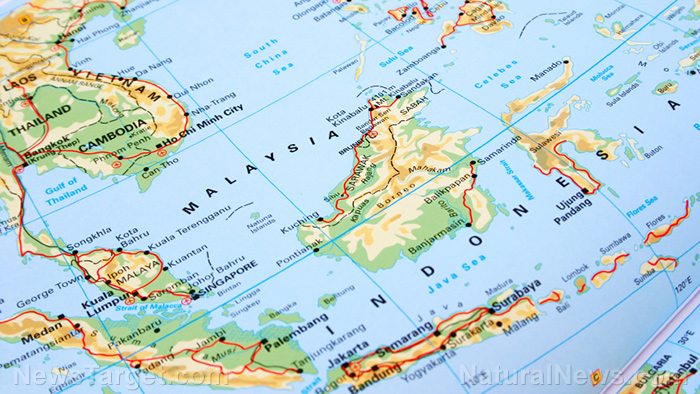- Indonesia has officially joined the expanding BRICS group of developing economies.
- Indonesia’s accession into BRICS, first endorsed in 2023 and finalized under the government of new Indonesian President Prabowo Subianto, reflects its push to strengthen ties with developing economies and advocate for global governance reforms.
- BRICS’s expansion comes as it further desires to challenge Western-dominated financial and political systems.
- BRICS likely to continue expanding, with nations like Belarus, Bolivia and Thailand expected to become new members soon.
Indonesia, the world’s fourth-most populous nation, has formally joined the BRICS group of major emerging economies, Brazil announced on Monday, Jan. 6.
The move marks a significant expansion of the bloc, which now includes Brazil, Russia, India, China, South Africa, Egypt, Ethiopia, Iran and the United Arab Emirates.
Indonesia’s membership, endorsed by BRICS leaders in 2023, was finalized following the formation of its new government last year, led by President Prabowo Subianto. The decision underscores Indonesia’s strategic push to strengthen ties with developing nations and advocate for reforms in global governance institutions.
The announcement comes as BRICS continues to position itself as a counterweight to Western-dominated financial and political systems. Founded in 2009 by Brazil, Russia, India and China, with South Africa joining in 2011, BRICS has evolved from a platform for mutual investment into a forum addressing broader geopolitical and economic issues.
Indonesia’s inclusion aligns with the group’s recent expansion efforts, which saw four new members added in 2023 and several others, including Belarus, Bolivia and Thailand, expected to join as partner states this year. (Related: Economic wrath: Deteriorating Western markets and the rise of BRICS.)
“Indonesia shares with the other members of the group support for the reform of global governance institutions and contributes positively to the deepening of cooperation in the Global South,” the Brazilian government said in a statement. Brazil, which currently holds the group’s rotating presidency, emphasized Indonesia’s strategic importance as the largest economy and most populous nation in Southeast Asia.
Indonesia’s foreign ministry welcomed the announcement, stating on Tuesday that “BRICS membership is a strategic way to increase collaboration and partnership with other developing nations.” The move reflects Jakarta’s long-standing desire to amplify the voices of emerging economies and challenge the dominance of traditional global powers.
BRICS expansion reflects group’s desire to strengthen its position against the U.S.
The expansion of BRICS comes at a time of shifting global dynamics. The group has increasingly focused on reducing reliance on the American dollar in international trade, a topic that gained prominence during the 2024 BRICS summit in Kazan, Russia.
Member nations discussed boosting non-dollar transactions and strengthening local currencies, a move that drew sharp criticism from United States President-elect Donald Trump, who threatened the group with “100 percent tariffs” if they undercut the U.S. dollar, highlighting the growing tensions between BRICS and Western economic powers.
Brazil, which will host the 2025 BRICS summit in Rio de Janeiro this July, has outlined ambitious goals for its presidency, including fostering greater cooperation among Global South nations and reforming multilateral institutions. One key objective is the “development of means of payment” to facilitate trade between member countries, a step that could further challenge the dollar’s dominance in global markets.
Indonesia’s entry into BRICS is not just a symbolic gesture but a strategic maneuver with far-reaching implications. As a member of the G20 and a key player in Southeast Asia, Indonesia brings significant economic and geopolitical weight to the bloc. Its membership could enhance the influence of BRICS in global forums, particularly in advocating for the interests of developing nations.
Watch this clip of Michael Yon discussing the impact of BRICS’s system on the future of money.
This video is from the Brighteon Highlights channel on Brighteon.com.
More related stories:
China responds to Trump threat of 100% tariffs on goods from BRICS countries by expanding relationship with its dollar-busting allies.
Trump fires warning shot at BRICS, threatens “100% tariffs” if China, Russia develop U.S. dollar alternative currency.
Global net zero efforts have fueled a nickel boom that is destroying Indonesia’s rainforests and coral reefs.
GREEN SHORTAGE: Lack of lithium preventing Indonesia from becoming a global hub for EVs.
Cobalt market notes highest supply jump on record as Indonesia becomes biggest global source outside of Africa.
Sources include:
RT.com
Reuters.com
TheJakartaPost.com
Brighteon.com
Read full article here


